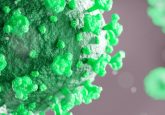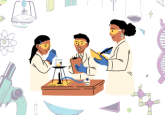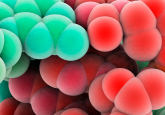STEM Tea | From prison cells to PhD with Stanley Andrisse
In this episode of STEM Tea, AJ talks to Stanley Andrisse, Assistant Professor at Howard University (DC, USA) and Executive Director of the nonprofit From Prison Cells to PhD, whose mission is, “to reach, touch, and change the lives of individuals with disadvantaged backgrounds through advocacy, mentoring, and policy change.”
Stanley’s drive to help people from disadvantaged backgrounds and those who have been incarcerated transition into professional careers, is matched only by his passion for endocrinology research. Hear AJ and Stanley discuss his story, from his latest publication on polycystic ovary syndrome (PCOS) and non-alcoholic fatty liver disease in black women, his work to understand the pathways that lead to insulin resistance, the intergenerational impact of incarceration and mentoring practices.
You can also get an insight into his recently published book, From Prison Cells to PhD: It is Never Too Late to Do Good, and find out how scientists and the general public can do more to support the people Stanley helps.
Contents:
- Introduction: 00:00-01:35
- Introducing STEMTea guest, Stanley Andrisse: 1:33-03:05
- Understanding mechanisms of insulin resistance: 03:05-05:20
- PCOS and non-alcoholic fatty liver disease in Black women: 05:20-07:05
- Good mentoring practices and inspirations: 07:05-09:40
- Examples of mentoring improving critical thinking and relationships with failure: 09:40-11:30
- Developing a mentoring relationship: 11:30-16:30
- Life experiences that improve mentoring capabilities: 16:30-21:50
- The Endocrine Society and two recent publications: 22:45-28:50
- Pell Grants and their inaccessibility to the incarcerated: 28:50-34:00
- NSF grant and STEM Ops: 34:00-38:15
- Incarceration, higher education, family structure and intergenerational impacts of both: 38:15-44:20
- The 1619 Project by Nikole Hannah-Jones and From Prison Cells to PhD by Stanley Andrisse 44:20-49:30
- Takeaways and conclusions 49:30-51:30
- Ways scientists can support From Prison Cell to PhD 51:30-52:25
- What’s the tea? 52:25-54:47





